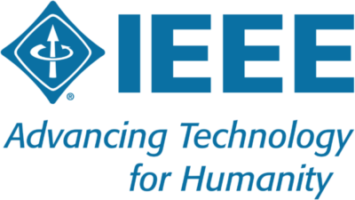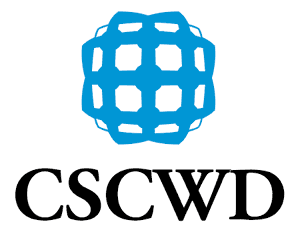

|
|
|
Special SessionsPapers submissionTo submit your papers, choose the special sessions under "Topics" on the submission system (please select only one special session): https://easychair.org/my/conference?conf=cscwd2025 1. Adaptive Collaboration SystemsOrganizer
DescriptionAdaptability is a common and typical property for natural systems in the real world. It is also an important and desirable property for computer supported artificial distributed intelligent systems. Adaptive collaboration system can be viewed as a set of interacting intelligent agents, real or abstract, forming an integrated system that is able to respond to internal and environmental changes. Feedback is a key feature of adaptive systems, enabling the response to changes. Artificial systems can be made adaptive using feedback to sense new conditions in the environment and adapt accordingly. Distributed adaptive systems can find applications in almost all industrial sectors, particularly in aerospace, automotive, and manufacturing. 2. Applications & IndustryOrganizers
DescriptionThe objective of this session is to show the impact of different cooperative support tools on industrials design activities. Several types of companies will be invited to present as same as cooperative applications, projects and their experience feedback on their use. 3. Collaborative Business Information and TechnologyOrganizer
DescriptionThe Special Session on Collaborative Business Informatics and Technology at the 2025 IEEE
28th International Conference on Computer-Supported Cooperative Work in Design (IEEE
CSCWD) aims to bring together researchers, practitioners, and industry experts to explore
cutting-edge developments in collaborative technologies and their impact on business
informatics and related fields. In an era where digital transformation, global supply chain
disruptions, and geopolitical uncertainties demand agile and adaptive business processes,
collaboration within and between organizations is becoming increasingly critical. This session
will address the evolving role of collaborative computing technologies and their ability to
improve business operations, foster innovation, and ensure secure, efficient communication
and decision-making.
4. Knowledge-driven Big Data Computing and Its ApplicationsOrganizers
Description
Knowledge Driven is uplevel computing of basic big data, which aims to construct a sustainably knowledge
upgraded structure by valuable rules discovery continuously. It can support more complex knowledge decisions
through more widely knowledge cross computation, such as understandability interaction, potential valuable
relevance mining, interest-aware computing, and etc. This special session will discuss recent advanced in
knowledge-driven big data computing and its applications.
5. Innovative Digital Collaboration Approaches for Enhancing Higher Education Scientific Skills.Organizers
Description
The increasing reliance on digital technologies in scientific education is reshaping the ways students and
researchers collaborate, communicate, and develop key research skills. Beyond the technical aspects, these
digital technologies also impact the human elements of collaboration, such as team dynamics,
cross-disciplinary interaction, and the ability to navigate cultural and communication challenges in a
globalized academic environment.
This special session will focus on the design, development, implementation, and assessment of digital
collaboration approaches (e.g., platforms, tools, methods) that foster research skills, learning, critical
thinking, and teamwork in scientific education.
Topics of interest include, but are not limited to: 6. Collaborative Innovations and Emerging Technologies in Industrial TransformationOrganizers
DescriptionAs the industrial landscape continues to evolve with the integration of advanced technologies,
cross-disciplinary collaboration becomes essential for driving innovation and transformation. This special
session will explore how interdisciplinary approaches—combining fields such as design science, service
science, medical science, and data science—are shaping the next generation of industrial systems. By
examining the role of emerging technologies such as artificial intelligence (AI), cyber-physical systems,
digital twins, and the industrial metaverse, this session will foster discussions on the challenges,
opportunities, and future directions in industrial innovation.
This session aims to: 7. Embedded Intelligent Systems for ImagingOrganizers
DescriptionEmbedded intelligent systems are becoming increasingly integral to modern imaging technologies, driven by advancements in artificial intelligence (AI) and the need for real-time, efficient image processing. This proposal aims to explore the development of an embedded intelligent system that can be utilized for advanced imaging tasks, such as object detection, recognition, and image enhancement. By leveraging neural networks, edge computing, and AI-driven optimization algorithms, the system is expected to offer superior accuracy and speed in image analysis. Our approach will involve integrating state-of-the-art sensors with powerful AI models, allowing for real-time performance in areas such as medical imaging, surveillance, autonomous vehicles, and industrial automation. The system will be designed for scalability, ensuring compatibility across various imaging platforms and industries. The results from this research will contribute to the evolution of intelligent embedded systems, paving the way for more efficient, adaptable, and intelligent imaging solutions. 8. Collaborative Anomaly Detection and Fault DiagnosisOrganizers
DescriptionThe complexity of modern industrial systems has escalated the need for Collaborative Anomaly Detection
and Fault Diagnosis (CADFD), which integrates multiple diagnostic resources, data from various sensors,
and expertise from different domains to enhance the accuracy and reliability of fault detection and
analysis. This special session aims to bring together researchers and practitioners to explore the latest
advancements in CADFD.
Topics of interest include, but are not limited to: 9. AI-Driven Innovations in Industrial Intelligence for Advancing Industry 4.0 and Sustainable DevelopmentOrganizers
DescriptionThe rapid development of Industry 4.0 has revolutionized traditional industrial processes, with advanced
technologies like Artificial Intelligence (AI), the Internet of Things (IoT), and Big Data playing pivotal
roles. These innovations have led to the creation of smart factories, autonomous production systems, and
data-driven manufacturing, which enable industries to achieve greater efficiency, flexibility, and
precision. Industrial Intelligence, powered by AI and machine learning, optimizes operations by facilitating
predictive maintenance, real-time decision-making, and process automation. This integration has
significantly reshaped industrial landscapes, promoting productivity while reducing operational costs and
human error.
10. Smart Sensor Networks and Internet of ThingsOrganizers
Description
With the rapid development of information technology, Internet of Things (IoT) and Intelligent sensing
technologies have become hot topic. In the large scale Sensor Networks, the massive sensing data with
complex in structures, high dimensional, distributed, and heterogamous are growing rapidly. It brings new
opportunities to data owner and challenges to data researchers. These challenges are distinguished and
require new computational paradigm. How to build an efficient IoT architecture and get the large scale
sensing data has become the emerging research focuses.
|


